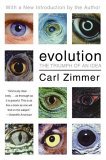Just because a trait exists, or some process happens, and I can come up with an adaptationist just-so-story to explain its significance, doesn't necessarily mean that that trait or process actually has any functional, adaptive significance! That old lesson, hammered into behavioral ecologists like me by Gould and Lewontin's classic paper from 30 years ago, it seems, must be learned all over again by a new generation of genomic biologists! So argues Michael White in this must-read essay on the fascinating phenomenon of Genomic Junk and Transcriptional Noise:
With hot, new technologies, biologists are taking higher-resolution snapshots of what's going on inside the cell, but the results are stirring up controversy. One of the most interesting recent discoveries is that transcription is everywhere: DNA is transcribed into RNA all over the genome, even DNA that has long been thought to have a non-functional role. What is all of this transcription for? Does the 'dark matter' of the genome have some cryptic, undiscovered function?
Unfortunately, in all of the excitement over possible new functions, many biologists have forgotten how to frame a null hypothesis - the default scenario that you expect to see if there is no function to this transcribed DNA. As a result, the literature is teeming with wild, implausible speculation about how our excess DNA might be beneficial to us.
So here, let's step back and look at what we expect from DNA when it's playing absolutely no functional role; in other words, let's look at the null hypothesis of genomic junk and transcriptional noise. We can then take our null hypothesis and use it to look at a fascinating new study of how genomic parasites sculpt transcription in our cells.
There is no such thing as inert DNA
What bothers me most about the recent hullaballoo over pervasive transcription is the tacit assumption that non-functional DNA has to be inert. This is a terrible assumption from both a biochemical and an evolutionary viewpoint. We have every reason to expect non-functional DNA to be noisy.
...
[via Genomic Junk and Transcriptional Noise]
Now, I don't know a whole lot about what goes on inside cells and the intricacies of DNA transcription - so it is still news to me that there is so much more transcription going on than is actually "needed", a whole lot of transcriptional noise from non-coding regions of our genomes! But, as White argues so well, just because this non-coding DNA is getting transcribed doesn't mean it is no longer "junk" - all this transcription may simply be a result of basic biochemistry. Throw together a whole bunch of DNA and RNA polymerases, within the confined quarters of, say, a typical mammalian cell, and some of this stuff is bound to happen. So my genome-studying friends - excited as you are about the huge volumes of data you are drowning in and all these new discoveries, pause a moment to reflect on what it all means, and stop seeing function everywhere. Remember the NULL hypothesis, which, in this case, predicts transcriptional noise to occur all the time.













0 comments:
Post a Comment